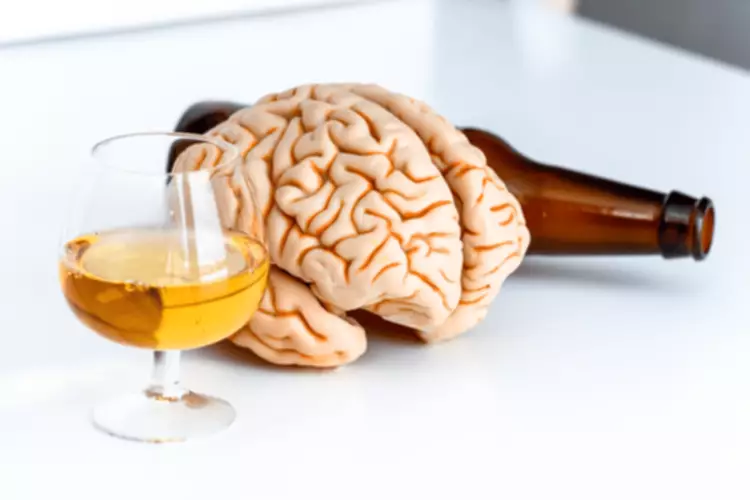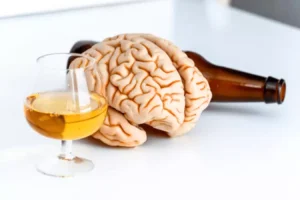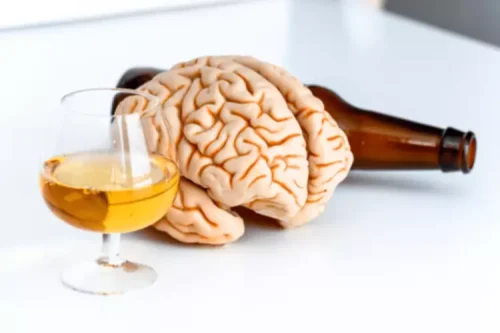Why does alcohol dehydrate your body?

That paper summarizes that research into whether stronger alcohol is linked with increased dehydration is inconclusive. A 2016 study published in the American Journal of Clinical Nutrition assigned a beverage hydration index (BHI) to various drinks that would determine hydration status after ingestion. In addition, certain types of energy drinks contain other ingredients that could contribute to dehydration. In another study, thirsty adults perceived a cold carbonated beverage to be more thirst-quenching than water. However, research is mixed on the hydrating effects of certain beverages. While all liquids can help maintain hydration status, some may be more beneficial than others.
Hydration Status:
Alcohol affects hydration by suppressing the release of vasopressin. Vasopressin is the hormone in the brain that signals the kidneys to retain fluid. When alcohol is consumed, it increases urination, and therefore, loss of fluids. As alcohol consumption continues, the body will become more dehydrated. This is where hangovers come in, and the main reason for the symptoms behind them is dehydration. Common signs include headaches, increased thirst, and fatigue.
- Lastly, you may become mildly dehydrated from wine and similar high alcohol content beverages through sweat (though this is ultimately minor compared to the other effects above).
- Alcohol is a diuretic, meaning it tells the body to produce more urine.
- Alcohol is a depressant, meaning it slows down the body’s functions, including the production of hormones and other important chemicals.
Final Thoughts on Alcohol Bloating

The best way to quickly rehydrate is to regain the minerals flushed out due to excessive urination. Although it’s unknown whether alcohol dehydrates muscle, it still has an effect. “The alcohol in beer can affect the brain so that reflexes are slowed down, and your balance, memory and sleep may be impaired,” says Kimberly Gomer M.S., RD, LDN. You should try drinking 3-4 liters of water instead to prevent kidney stones.

When alcohol makes you wet the bed
Alcohol is a diuretic and therefore causes excessive urination. “If you are looking to find a drink that is less dehydrating, try choosing ones that you would enjoy over a longer period of time,” Richardson says. Sipping on one whisky all evening will likely mean you ingest less alcohol overall than three or four standard glasses of wine.
Preventing Dehydration from Alcohol
- These include increased facial lines, oral commissures (lines around the mouth), and increased visibility of blood vessels.
- A lower-alcohol beer, if you don’t drink too many, will be less dehydrating than wine or hard liquor, since beer generally has a lower alcohol content.
- As the liver breaks down the alcohol, it is converted into a substance called acetaldehyde, which can be toxic in high doses.
Using electrolytes while drinking alcohol may be especially beneficial for individuals with high blood pressure and other cardiovascular issues. Not only does drinking alcohol while exercising increase the risk of injury, but it also can exacerbate dehydration related to physical activity. amphetamine addiction treatment Consuming alcohol on an empty stomach causes rapid intestinal alcohol absorption, amplifying the dehydrating effects of alcohol.
When you drink alcohol, there is an increase in the amount of stomach acid being produced. Alcohol can also slow down the passage of food through your intestinal system. This will often cause stomach pain, nausea, and even vomiting. Consuming foods with high water content, such as fruits and vegetables, can help counteract the dehydrating effects of alcohol.
- You might assume that any fluid intake should contribute to your hydration level.
- Its unique combination of minerals, which cannot be found in any other mineral water, is clinically proven to aid our digestive system and thus also manage bloating.
- Alcoholic jaundice is usually found in the progressive, final stages of liver disease.
- Alcohol restricts blood vessel dilation and increases heart rate, which explains why drinking can cause arrhythmia and elevated blood pressure.
- Over time, mass mineral and electrolyte deficiencies can lead to rapid dehydration when alcohol enters the picture.
Drink Water Before Drinking Alcohol
- When you drink alcohol, your body produces more urine than usual.
- Vitamin B, zinc, and iron are also crucial for your immune function and a healthy nervous system, but alcohol-caused deficiencies can completely wreck your nervous system.
- Alcohol impacts our cognition, mood, balance (ever had a few too many and seen the world spinning?), speech and many other aspects of our physiology.
The amount of alcohol in beer is thought to determine its diuretic effect, and therefore how much it can dehydrate you. You might assume that any fluid intake should contribute to your hydration level. However, alcohol is more complicated, and consumption of alcoholic beverages may not give you a hydration boost. Alcohol causes irritation and inflammation along your gastrointestinal (GI) tract, disrupting normal digestive function. Evidence suggests that certain alcoholic beverages, such as wine and beer, appear to accelerate the movement of food and waste through the digestive system, which can lead to diarrhea.

Does Alcohol Dehydrate You? How To Rehydrate After Drinking
As we mentioned before, adding more beer to the equation will only increase the rate at which you need to urinate. Drinking water will not only provide hydration and liquid to your body when it needs it most, but it can have the effect of slowing down why does beer make you dehydrated how quickly the alcohol reaches your bloodstream. The frequency and duration of drinking can also impact the dehydrating effects of alcohol.


